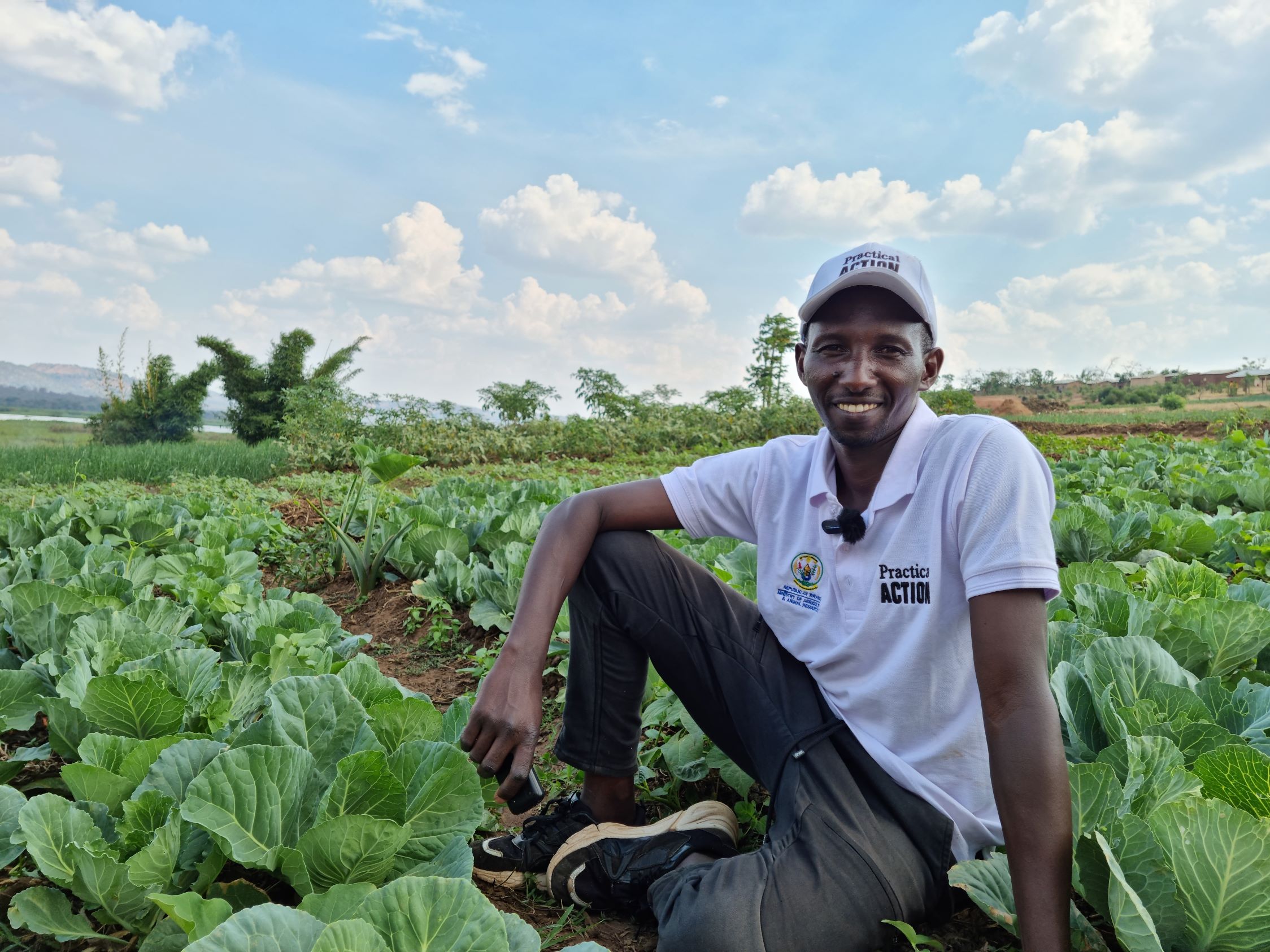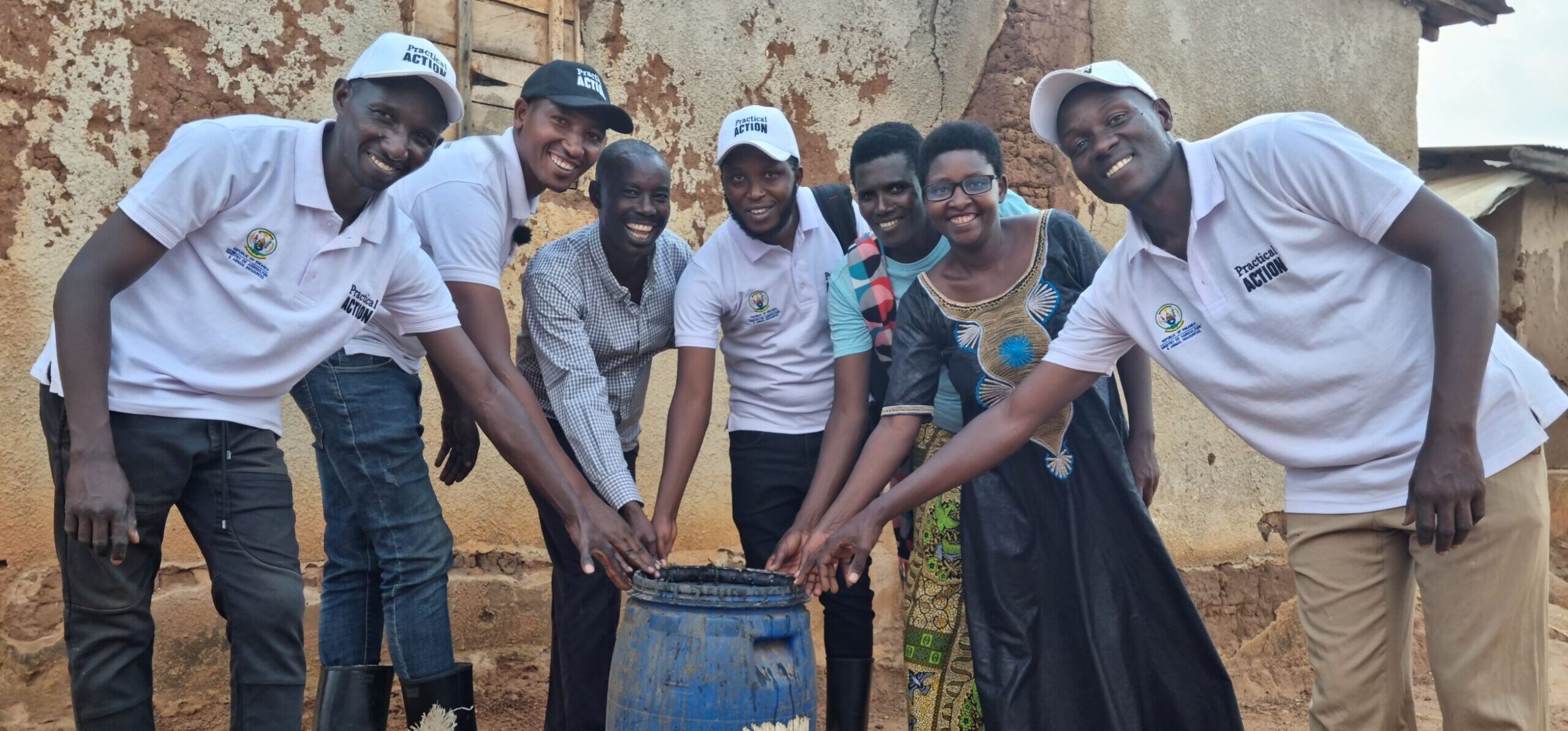In Rwanda’s Eastern Province, amidst the green landscapes of the Mahama sector in the Kirehe district, an initiative known as the Climate Resilient Farming Project (CRF) has taken root, achieving remarkable positive change. Thanks to the support from the People’s Postcode Lottery and Kilburn & Strode, this project has become a game-changer for both the residents of Mahama Refugee Camp and the neighbouring host community.
We worked closely with refugees and local farmers to tackle hunger and climate change through regenerative agriculture and solar-powered irrigation. Over two years, the project has addressed challenges like soil degradation, droughts, and limited market access, enabling farmers to double their income and improve food security. The initiative has established cooperatives, enhanced agricultural techniques, and secured long-term water access, fostering resilience and sustainability in Mahama Camp, home to nearly 58,000 refugees.
As the project approaches its end, the stories shared by the refugees tell the story of its impact, particularly on the two cooperatives involved. This project is a powerful example of transformation through fostering resilience, sustainability, and economic empowerment.

Tackling challenges with knowledge: MACLFACO cooperative
At the forefront of a profound shift, Veronique and Eduard, president and vice president of the MACLFACO cooperative, reflect on the journey of building relationships between groups, sharing knowledge, and expanding the cooperative’s reach. Their leadership has been crucial in navigating challenges and seizing opportunities.
Eduard recounts early setbacks, such as the difficulties faced with an avocado plantation due to unsuitable soil conditions. However, they forged ahead, fuelled by resilience and newfound knowledge in sustainable farming and financial literacy.
Their efforts weren’t in vain. Through hands-on activities and innovative techniques promoted by Practical Action, the cooperative experienced tangible changes using sustainable farming practices, ranging from regenerative agriculture techniques to organic fertiliser production. Planting over 10,000 agroforestry trees not only bolstered ecosystem health but also provided a buffer for farming against the region’s harsh, dry climate conditions.
Looking ahead, the cooperative is poised for a significant milestone: selling 54 tons of maise to a major buyer. This achievement shows not only their progress but also their resilience and determination to thrive despite the odds.

From rookies to empowered farmers: KUIMA cooperative
From crop seasons leadership development to market access training, Eugenie, a KUIMA cooperative member, highlights how knowledge sharing boosted the cooperative’s productivity and organisation. When the cooperative started, she recalls the hardships of lacking experience in farming and managing. Yet, she recognised it could be a path towards a better future. Echoing similar sentiments of most KUIMA members, she recalls: “We really had no idea what we were doing. We did not even know there was a way to plant crops and which season was right for the seeds. There was no proper leadership in our cooperative, and everything was done in an unorganised way”.
Richard, now president of the irrigation sector, vividly describes the struggle for water access and the game-changing introduction of solar irrigation systems. The newfound abundance in harvests, coupled with more efficient operations, has brought prosperity for the cooperative.
Their quality of life has improved significantly. They now produce enough food to ensure a healthier diet for each household and the entire camp. Moreover, the surplus produce provides them a source of income, fostering financial independence.
“It has been two seasons of harvest now, and we have noticed so much change. For example, by the time it is harvested, we have already secured clients who will buy our crops. Compared to before, we now grow so much with little waste. I did not know we could grow as much as we have in the recent harvest and that this land was capable of even doing so.”
Eugenie, KUIMA cooperative member
Richard adds, “As we no longer struggle for our soil to stay moist or fertile, I now have more time to do other stuff. For instance, I have recently had the opportunity to work in a house nearby, and, because of the training and knowledge that I received from Practical Action, I was promoted to a team leader position and one of the experts on that team.”
As the project concludes, its lasting impact is clear, highlighted by the construction of a cold room facility for long-term storage. Supported by Practical Action in fostering sustainable livelihoods and community resilience, the cooperative leadership and members are filled with renewed optimism that extends beyond the project’s duration.

Collaboration that fosters big change
The stories of Veronique, Eduard, Eugenie, and Richard, along with the achievements of the MACLFACO and KUIMA cooperatives, highlight the profound impact of dedicated leadership and the power of regenerative agriculture to improve community livelihoods. Through resilience, innovation, and support from organisations like Practical Action, these cooperatives have overcome significant challenges to create sustainable, thriving communities. Their journeys serve as inspiring examples of what can be achieved when knowledge, perseverance, and collective effort converge. The tangible results—increased food security, financial independence, and infrastructural advancements—demonstrate the enduring power of community-driven change.
